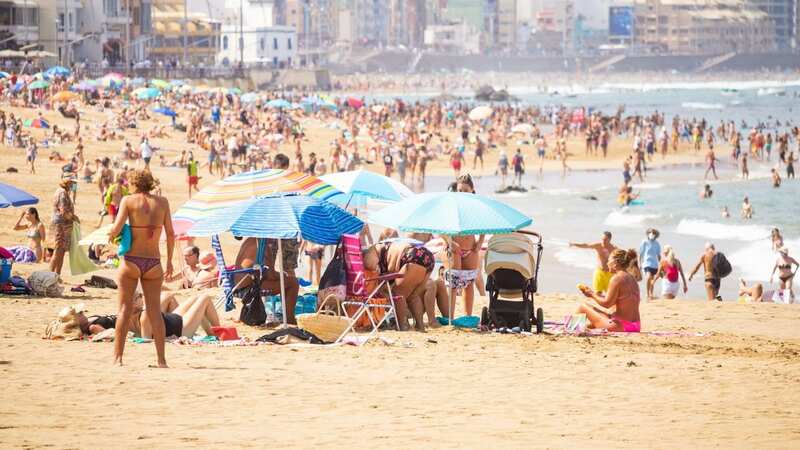

UK holidaymakers have been warned about travelling to the Canary Islands including popular spots like Lanzarote and Tenerife.
Officials on the island chain beloved by Brits have raised more concerns that tourism is "exploiting" these holiday hotspots.
Despite a booming tourism industry, Spanish authorities are worried about increasing poverty and declining living standards for locals, who are struggling to afford increasingly expensive homes in the most desired areas of Tenerife and Lanzarote.
Fernando Clavijo, the president of the Canary Islands government, acknowledged this week that tourism is the archipelago's "leading industry", potentially to its detriment, the Express reported.
 The politicians expressed concern about the natural environment on the Canary Islands (No credit)
The politicians expressed concern about the natural environment on the Canary Islands (No credit)He called on the sector to support other industries such as agriculture, and to increase wages to better distribute wealth. Roughly 36% of the island's population - around 780,000 people - are at risk of poverty and social exclusion.
 Teachers, civil servants and train drivers walk out in biggest strike in decade
Teachers, civil servants and train drivers walk out in biggest strike in decade
The Canary Islands president acknowledged that "the rich are richer and the poor are poorer", with 3% of the population of the archipelago accumulating 58% of the wealth.
Casimiro Curbelo, president of the Cabildo de La Gomera which is in charge of the landscape and forestry on the islands, doesn't want to change the current tourism model but wants to improve it to "achieve excellence". The Canary Islands are Spain's third most visited region internationally.
He argued it was shocking that the tourism sector on the Canary Islands continues to get stronger every day while society at large is getting poorer. He said it was crucial to find out "what is wrong".
Mr Clavijo insisted that the tourism sector "must be aware" that it has a "responsibility" to society, given that it exploits a "landscape" that "belongs to everyone", and, in this context, he pointed out that the public administrations must "help".
The volcanic archipelago, located off Morocco's coast in the North Atlantic Ocean, is a top holiday destination. The Canary Islands, formed millions of years ago by volcanic eruptions, are home to the oldest island, Fuerteventura, which is over 20 million years old. The other islands, Lanzarote, Gran Canaria, Tenerife, La Gomera, La Palma and El Hierro, followed in that order.
Mr Curbelo stated "there is no need to change" the tourism model in the Canary Islands, but it needs to be "improved" to "make it more competitive and sustainable". He urged Mr Clavijo to work with public institutions to address the "structural deficits" of poverty and unemployment.
Earlier this month two academics at Las Palmas University told the Mirror about the threats the holiday hotspots face including a massive sewage problem, a chronic housing shortage and chaos on the roads.
While they were frank about the problems the Spanish islands face to retain their reputation as Europe's go to sunshine destination, the academics made it clear that Canarians remain as welcome and happy to greet visitors from across the world as ever.
Professor Carmelo J. León and Dr Matías González Hernández both said that tourism was not an issue in itself, but that it needed to be handled much better so locals were not priced out of their homes and the natural environment was not overwhelmed.